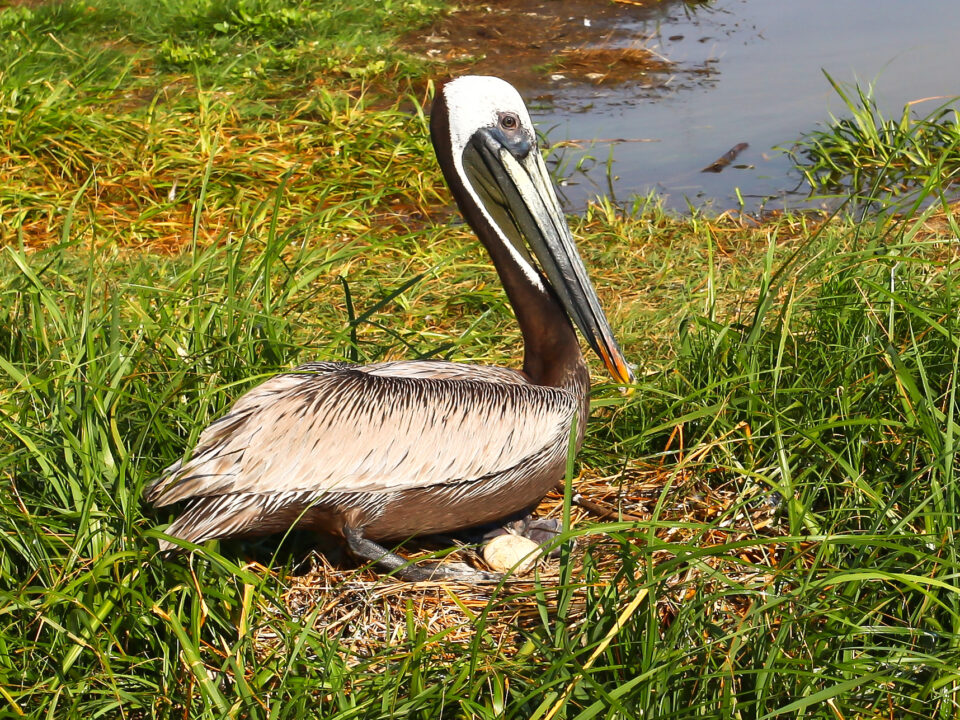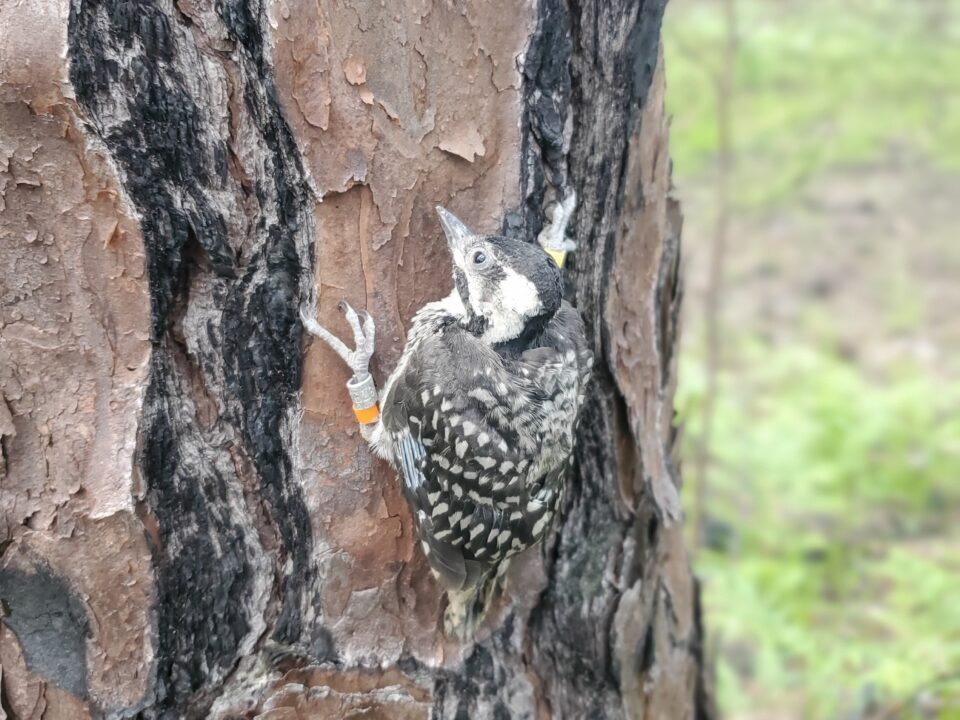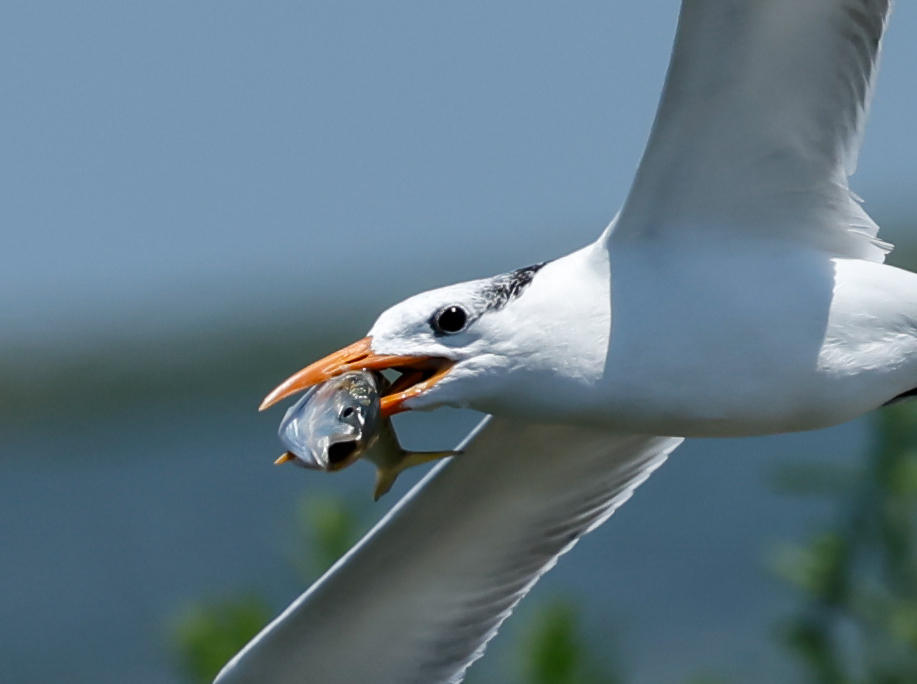Fletcher Smith Returns to the Arctic
Camellia Is Back At Nanney’s Creek June 10
June 11, 2014Camellia Remains at Nanney’s Creek June 14
June 14, 2014
For the third consecutive year, Fletcher Smith has returned to operate a base camp to study breeding shorebirds on the Mackenzie River Delta in collaboration with the Canadian Wildlife Service. The camp is part of both the Arctic Shorebird Demographic Network (ASDN) and Arctic Program for Regional and International Shorebird Monitoring (Arctic PRISM). The overarching objectives of these programs are to measure demographic parameters of breeding shorebirds, such as adult survivorship and productivity, and to estimate population size and trends in Arctic shorebirds. This information is extremely hard to gather for shorebirds and the network of sites gathering this information spans the entire Arctic.
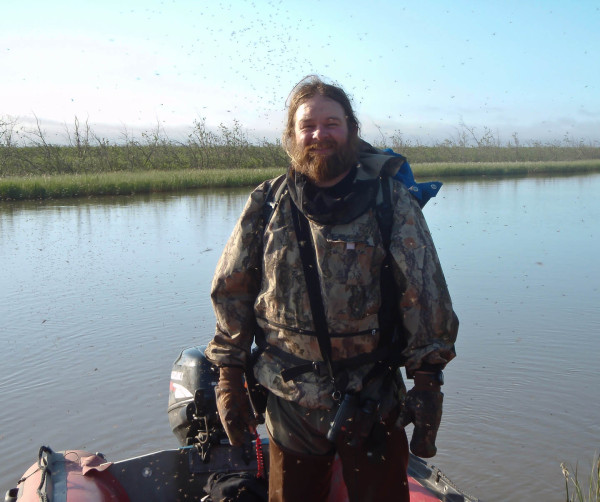
Fletcher Smith in the field Zodiac near shorebird base camp within the Mackenzie Delta.
The Mackenzie camp is remote. All supplies and field personnel were helicoptered into the camp on June 4th. Fletcher reports a pair of gyrfalcons nesting in camp for the second year and a female grizzly bear with two cubs in the area. Whimbrel pairs have begun to lay eggs and Fletcher reports seeing a satellite tagged bird from a previous year. Periodic progress reports will be posted on the CCB social media channels (Facebook, Google+, Twitter) as the season unfolds.
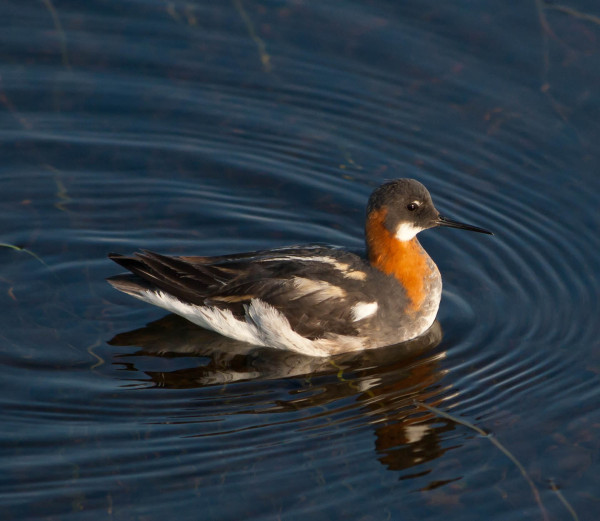
Male red-necked phalarope in breeding plumage. The red-necked phalarope is one of the most common breeding shorebirds within the Mackenzie Delta study area. Photo by Fletcher Smith.
Focal shorebird species within the Mackenzie River Delta include Red-necked Phalarope, Semi-palmated Sandpiper, Pectoral Sandpiper, and Whimbrel. Breeding performance for these and other species will be documented. An additional objective of the season will be to deploy 6 satellite transmitters on breeding whimbrel. The collaborative satellite tracking project has been a tremendous success in providing useful information to conservation. Prior to the tracking of the Mackenzie River Delta whimbrels, very little was known about the broader life cycle of these birds. During the 2012 and 2013 breeding seasons, 7 whimbrels were tagged in the Mackenzie Delta and all migrated to Atlantic Canada and staged for 2-3 weeks before undertaking a non-stop 4,500 kilometer flight to northern South America to spend the winter. The whimbrels can be tracked at Wildlifetracking.org.
Releasing a satellite-tagged whimbrel near base camp on the Mackenzie River Delta. Video by Fletcher Smith.
Written by Bryan Watts | bdwatt@wm.edu | (757) 221-2247
June 12, 2014

